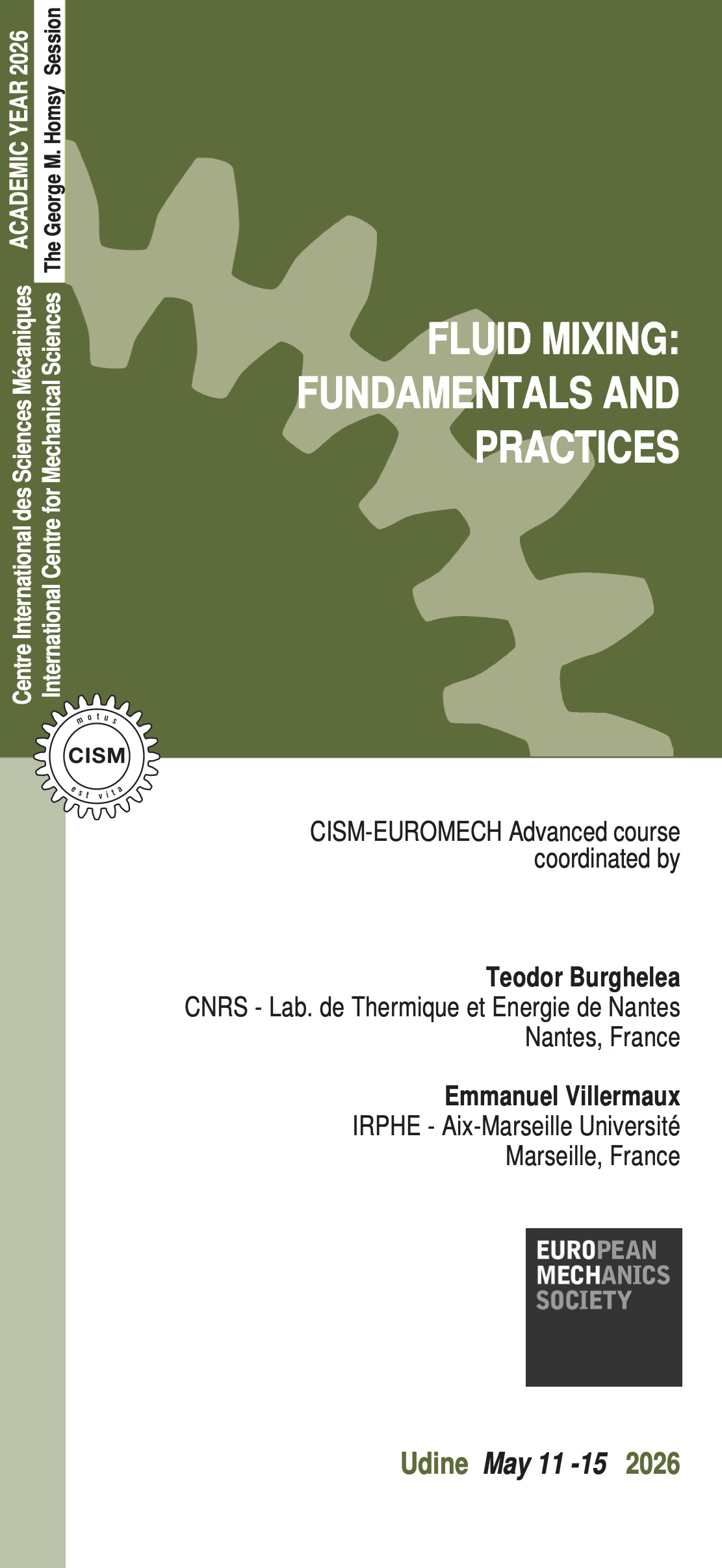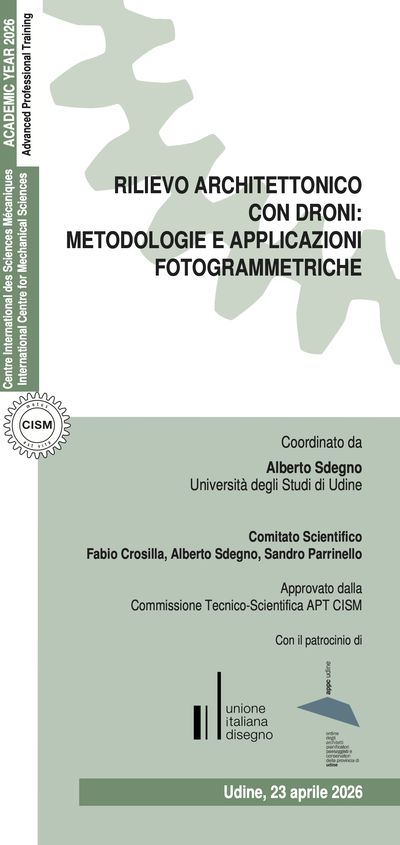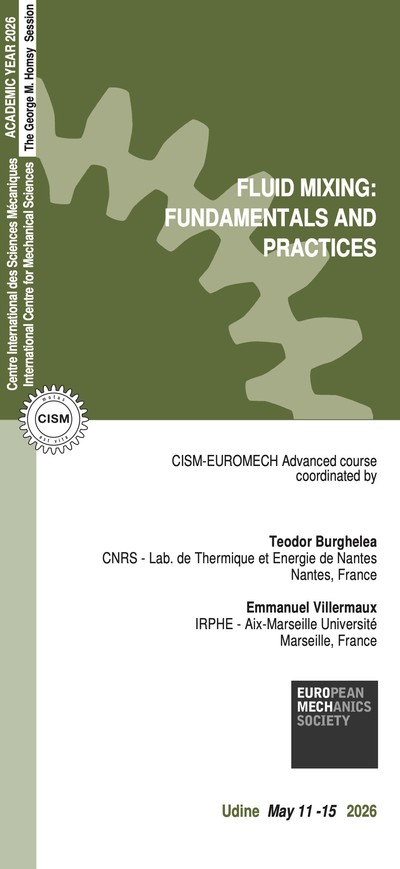Fluid mixing or the process of homogenization of gradients of scalar fields such as concentration or temperature is ubiquitous in nature and may be observed over a broad range of spatial scales starting from the microscopic scale (e.g. in porous media or bio-physical flows) up to geophysical flows (e.g. mixing of bio-mass by ocean currents). The relevance of fluid mixing across the disciplines is twofold.
From a practical standpoint, understanding the physics of mixing is of paramount importance in optimizing industrial processes that rely on the efficient transport of mass and/or heat related to a variety of modern industrial settings such polymer processing, food engineering, bio-chemical engineering. The control and optimization of practically relevant mixing processes may be achieved various approaches including by either special design of the flow geometry, optimized flow forcing schemes or fine tuning of the rheological properties of the fluids to be mixed. Regardless the approach that is undertaken, a deep physical understanding of the interplay between diffusion and advection in each particular context is needed in order to achieve this goal.
From a fundamental standpoint, a systematic understanding of the fluid mixing requires an interdisciplinary effort at the intersection of several disciplines: fluid mechanics, applied mathematics, chaos and nonlinear dynamics, chemical and biological engineering.
The central aim of this course is to provide a thorough overview of mixing in various flows based on the most recent research results and most up to date methods used in either experiments or analytical predictions and/or their numerical validation.
The course is organized along three blocks. Within the first block, fundamental theoretical aspects on flow kinematics, advection, diffusion, mixing, rheology will be introduced. Through the second block, modern approaches to characterize mixing in chaotic flows including nonlinear dynamics tools, braiding theory, finite size Lyapunov exponents, finite time Lyapunov and quanta. will be detailed. Within the third block, mixing will be discussed in several specific contexts: porous media, geophysical flows, industrial flows and rheologically complex fluids.
Crisanti, A., Falcioni, M., Paladin, G., & Vulpiani, A. (1991). Lagrangian chaos: Transport, mixing and diffusion in fluids. Riv. Nuovo Cim., 14, 1-80. https://doi.org/10.1007/BF02811193
Lacorata, G., Aurell, E., Legras, B., & Vulpiani, A. (2004). Evidence for a k^{−5/3} spectrum from the EOLE Lagrangian balloons in the low stratosphere. J. Atmos. Sci., 61, 2936-2942. https://doi.org/10.1175/JAS-3292.1
Espa, S., Lacorata, G., & Di Nitto, G. (2014). Anisotropic Lagrangian dispersion in rotating flows with a β-effect. J. Phys. Oceanogr., 44, 632-643. https://doi.org/10.1175/JPO-D-13-045.1
Corrado, R., Lacorata, G., Palatella, L., Santoleri, R., & Zambianchi, E. (2017). General characteristics of relative dispersion in the ocean. Sci. Rep., 7, 46291. https://doi.org/10.1038/srep46291
Lacorata, G., & Vulpiani, A. (2017). Chaotic Lagrangian models for turbulent relative dispersion. Phys. Rev. E, 95, 043106.
Moguen, Y., Younes, E., El Omari, K., Castelain, C., Le Guer, Y., & Burghelea, T. (2023). Active chaotic mixing of yield stress fluids in an open channel flow. Theor. Comput. Fluid Dyn., 37, 203-239.
El Omari, K., Younes, E., Burghelea, T., Moguen, Y., Castelain, C., & Le Guer, Y. (2021). Active chaotic mixing in a channel with rotating arc-walls. Phys. Rev. Fluids, 6(2), 024502.
Traore, B., Castelain, C., & Burghelea, T. (2015). Efficient heat transport in a regime of elastic turbulence. J. Non-Newtonian Fluid Mech., 223, 62-76.
Burghelea, T., Segre, E., & Steinberg, V. (2004). Statistics of particle pair separations in the elastic turbulent flow of a dilute polymer solution. Europhys. Lett., 68, 529.
Burghelea, T., Segre, E., & Steinberg, V. (2004). Mixing by polymers: Experimentaltest of decay regime of mixing. Phys. Rev. Lett., 92, 164501.
Valocchi, A. J., Bolster, D., & Werth, C. J. (2019). Mixing-limited reactions inporous media. Transport Porous Media, 130(1), 157-182.
Heyman, J., Lester, D. R., Turuban, R., Méheust, Y., & Le Borgne, T. (2020). Stretching and folding sustain microscale chemical gradients in porous media. Proc. Natl. Acad. Sci. USA, 117(24), 13359-13365.
Le Borgne, T., & Heyman, J. (2025). Fluid deformation and mixing in porous media as drivers for chemical and biological processes. Annu. Rev. Fluid Mech., in press.
Lester, D., Metcalfe, G., & Rudman, M. (2007). Complete parametric scalar. dispersion. In Proceedings of SPIE, Microelectronics, MEMS, and Nanotechnology,Complex Systems II, Vol. 6802.
Lester, D., Metcalfe, G., & Rudman, M. (2014). Control mechanisms for the global structure of scalar dispersion in chaotic flows. Phys. Rev. E, 90, 022908.
Taylor, G. I. (1953). Dispersion of soluble matter in solvent flowing slowly througha tube. Proc. R. Soc. Lond. A, 219(1137), 186-203.
Saffman, P. G. (1959). A theory of dispersion in a porous medium. J. Fluid Mech., 6(3), 321-349.
Gelhar, L. W., & Axness, C. L. (1983). Three-dimensional stochastic analysis of macrodispersion in aquifers. Water Resour. Res., 19(1), 161-180.
Dentz, M., Hidalgo, J. J., & Lester, D. (2023). Mixing in porous media: Concepts and approaches across scales. Transport Porous Media, 146(1), 5-53.
Dentz, M., Kang, P. K., Comolli, A., Le Borgne, T., & Lester, D. R. (2016). Continuous time random walks for the evolution of Lagrangian velocities. Phys. Rev. Fluids, 1(7), 074004.
Haggerty, R., & Gorelick, S. M. (1995). Multiple-rate mass transfer for modeling diffusion and surface reactions in media with pore-scale heterogeneity. Water Resour. Res., 31(10), 2383-2400.
Villermaux, E., & Duplat, J. (2003). Mixing as an aggregation process. Phys. Rev. Lett., 91(18), 184501.
Duplat, J., & Villermaux, E. (2008). Mixing by random stirring in confined mixtures. J. Fluid Mech., 617, 51-86.
Le Borgne, T., Huck, P., Dentz, M., & Villermaux, E. (2017). Scalar gradients in stirred mixtures and the deconstruction of random fields. J. Fluid Mech., 812, 578-610.
Villermaux, E. (2019). Mixing versus stirring. Annu. Rev. Fluid Mech., 51, 245-273.
Meunier, P., & Villermaux, E. (2022). The diffuselet concept for scalar mixing. J. Fluid Mech., 951, A33, 1-42.
Villermaux, E. (2026). The quantum mechanics of mixing, Parts 1 & 2. J. Fluid Mech., to appear.
5 lectures on:
Introduction to mixing/overview of the course, introduction to complex fluids (from micro-structure to macroscopic flow behavior), active mixing in shear thinning fluids and yield stress fluids, mixing and heat transport by Elastic Turbulence.
6 lectures on:
Fundamentals of diffusion and stochastic processes, flow in heterogeneous media (Navier-Stokes equation, Stokes equation, Darcy equation, Darcy-Weisbach equation, power-law fluids, Darcy and network scales), dispersion and mixing from pore to regional scales.
with Tanguy Le Borgne
5 lectures on:
Fluid deformation, mixing and reactions in porous materials, control of mixing on chemical reactions in porous media, the interplay between mixing, interfacial processes and biological activity.
5 lectures on:
Lagrangian chaos in geophysical flows (from data analysis to trajectory modeling), including diffusion models, theory of conservative dynamical systems, applications in atmospheric physics, applications in physical oceanography and laboratory experiments.
with Joris Heyman
5 lectures on:
Fluid deformation, mixing and reactions in porous materials, control of mixing on chemical reactions in porous media, the interplay between mixing, interfacial processes and biological activity.
5 lectures on:
Fundamentals of fluid stirring (basic concepts, advanced concepts), mixing applications in porous media (pore-scale and Darcy-scale flows), engineering applications of mixing in pipe flows and interactions with chemical and biological processes.
5 lectures on:
The quantum mechanics picture of fluid mixing including the definition of a quantum and interaction rules between quanta, the coarsening scale, the quantum construction of concentration distributions, the quantum picture of a turbulent jet and the analogy with the blackbody radiation problem.
ADMISSION AND ACCOMMODATION
The course is offered in a hybrid format, allowing participants the flexibility to attend either in person or remotely via the Microsoft Teams platform.
Admission to on-site attendance is granted on a first-come, first-served basis to comply with the capacity of the lecture room.
Registration fees:
- Early Bird On-Site Participation: € 650.00 + VAT* - Deadline: March 11, 2026
- Late On-Site Participation: € 800.00 + VAT* - Deadline: April 29, 2026
- Live Streaming Online Participation: € 250.00 + VAT* - Deadline: April 29, 2026
On-site participation includes a complimentary bag, five fixed menu buffet lunches, hot beverages, downloadable lecture notes.
Online participation includes downloadable lecture notes.
Application forms should be submitted online through the website: http://www.cism.it. A confirmation message will be sent to participants whose applications are accepted.
Upon request, and subject to availability, a limited number of on-site participants can be accommodated at the CISM Guest House for € 35 per person per night. To request accommodation, please contact foresteria@cism.it.
CANCELLATION POLICY
Applicants may cancel their registration and receive a full refund by notifying the CISM Secretariat in writing (via email) no later than:
- March 11, 2026, for early bird on-site participation;
- April 11, 2026, for late on-site participation;
- April 29, 2026, for online participation.
No refunds after the deadlines. Cancellation requests received before these deadlines and incorrect payments will be subject to a € 50.00 handling fee.
GRANTS
A limited number of participants from universities and research centers who do not receive support from their institutions can request a waiver of the registration fee and/or free lodging.
Requests should be submitted by email to the CISM Secretariat at info@cism.it by March 11, 2026. Submissions must include the applicant’s curriculum vitae and a letter of recommendation from the head of the department or a supervisor, confirming that the institute is unable to provide funding. Preference will be given to applicants from countries that sponsor CISM.





